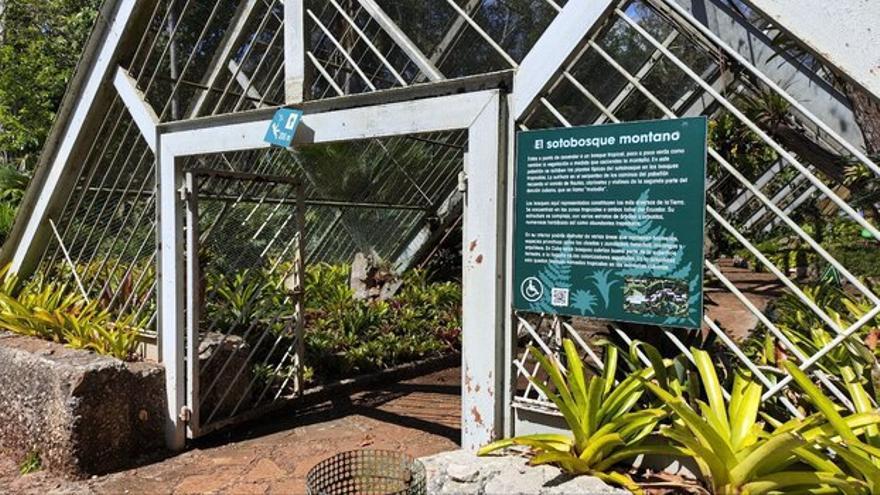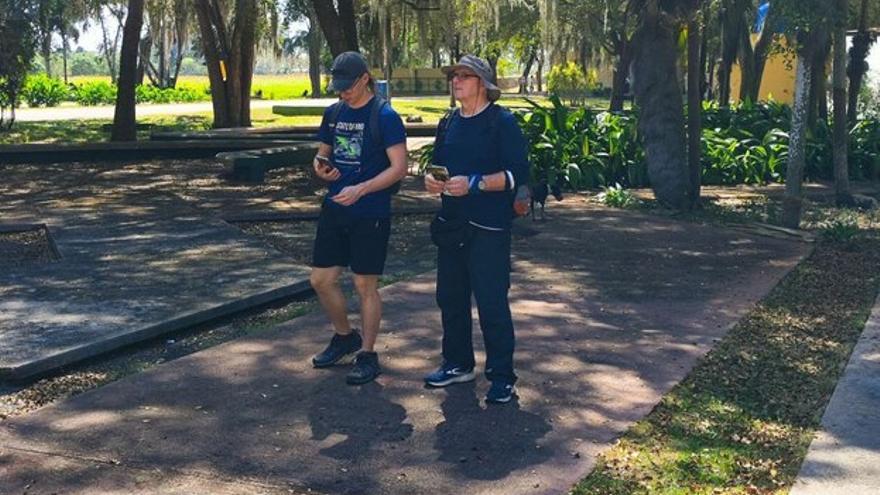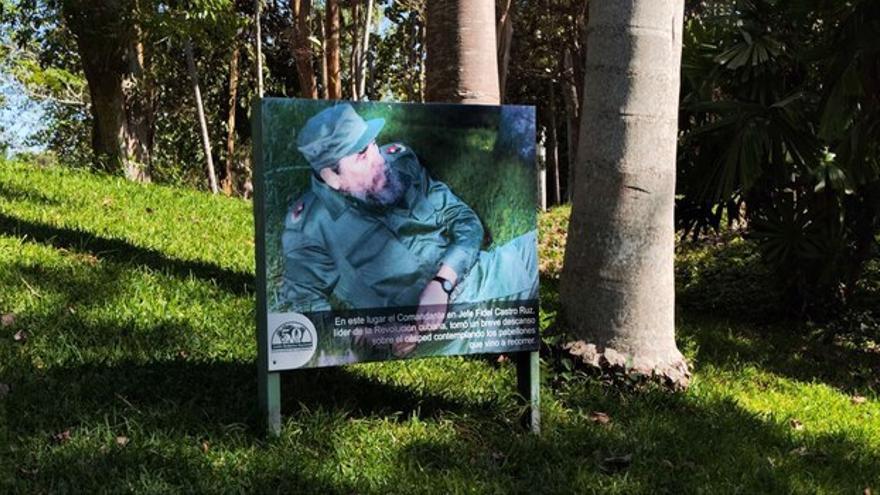
![]() 14ymedio, Juan Diego Rodríguez, Havana, 17 February 2024 — The Havana Botanical Garden has been hurt by its distant location. In a city where going from one neighborhood to another is already a headache due to the lack of fuel and the poor state of transport, getting from the center to the periphery of the Arroyo Naranjo municipality is an impossible mission if you don’t have your own car, a good amount of money for the trip, or you are able to book a tour with the bus included.
14ymedio, Juan Diego Rodríguez, Havana, 17 February 2024 — The Havana Botanical Garden has been hurt by its distant location. In a city where going from one neighborhood to another is already a headache due to the lack of fuel and the poor state of transport, getting from the center to the periphery of the Arroyo Naranjo municipality is an impossible mission if you don’t have your own car, a good amount of money for the trip, or you are able to book a tour with the bus included.
Once the threshold is crossed by paying 30 pesos to the guard, there are other problems: insecurity and crime. The primary victims are the workers, especially those who are involved in the food service. “The vegetarian restaurant El Bambú exists, but it is no longer making that type of food; it has a Creole menu,” says a bored employee sitting under a tree. “It’s not open at the moment because it was robbed.”
The lootings have taken over the Garden at night. “We leave every afternoon just as the thieves are arriving,” says a guard. He complains that the security workers don’t have what they need to prevent the thefts.
“We have weapons but few bullets, and they arrive with machetes, in groups,” he describes. “The other day in El Bambú, which was the last place they assaulted, one of those gangs took a boss, who is very strong, by the way. They beat him, tied him up and put him under a table with several chairs piled on top of him.”
“There were seven with knives and machetes,” he says. The reason for the robberies is “to steal food from the restaurants.” In another restaurant, La Majagua, “they entered days ago and found no food. There was no meat, no rice, no preserves, so they stole the bathroom door.” El Yarey and El Ranchón have also been robbed in the early hours of the morning.

“They emptied the creamery and took everything,” he says. Every attempt by workers to protect the goods has ended in physical aggression or threats. “If you don’t make things easy, we’ll kill you,” was the clear warning that the security guard of El Yarey received when, from the roof of the premises where he watched the area, he spotted the approaching criminals. “They broke the door, and there was no one to stop them.”
“They told him not to dare to use the phone because he wasn’t going to get out of there alive.” However, the worker recognizes that the outlaws don’t only arrive from outside. “Here there are bosses who do not want the guards to be in the places that have the most merchandise, so they can steal and blame the night gangs. Everyone steals, those from here and those who are not from here.”
In 1989, Fidel Castro inaugurated the icing on the Botanical cake: the Japanese Garden. It was part of an ambitious green belt with recreational options, areas to hold fairs and children’s playgrounds. “There will be six institutions, including Expocuba; four of them will be the Botanical Garden, Lenin Park, the Zoo and the Metropolitan, with many trees,” the ruler said, full of enthusiasm, before an audience that applauded with frenzy.
“I want to end by promising that this Botanical Garden will be more and more beautiful,” Castro wrongly predicted in that speech.

Now, to go to the Japanese Garden, you have to board a vehicle towed by a tractor with a capacity of 15 people. “If there are not 15, I won’t leave,” the driver warns four customers and says he will return at two in the afternoon “to see if there are people,” unless, he clarifies, “you want to pay for the full transport.”
In El Ranchón, one of the several Creole restaurants in the garden, only beer and appetizers of sausage and ham were available this Saturday. “The kitchen is closed,” says an employee who approaches the tables with jugs of beer at the cost of 610 pesos. If someone wants to eat, they have to wait for them to prepare the food in a neighboring establishment.
This Friday, Cubadebate described it as “the largest botanical garden in the world” and spared no praise for its facilities. “This is how Fidel dreamed of it,” concludes the report, which presents the 1,180 acres of vegetation – with 3,000 species of plants – as a kind of earthly paradise.
But drought, little irrigation and lack of attention have also made a dent in the important collection of plants from several continents. Dry shrubs, areas where only weeds grow and the exposures of greenhouses with numerous notable casualties attest to the urgent need to replace certain species and take care of those that remain more carefully.

The garden is attached to the University of Havana, and Cubadebate defines it as the quintessence of botanical studies in the region, alleging that more than 300,000 people visit it every year. Its workforce: 350 workers. The budget allocated to it by the State: 118 million pesos in 2023. “How is all that financed?” asks the regime’s media: thanks to the “generosity” of the Ministry of Higher Education, which manages the money destined for the Botanical Garden.
The digital newspaper admits that “the low technical availability of public transport and fuel,” in addition to the remoteness of the park, has caused a significant drop in visitors, 80% of what it received last year. For the Government, Cubadebate assures, improving this figure and using the garden to attract tourism is a matter of political and sentimental importance for Raúl Castro. For the nonagenarian general, the Botanical Garden is a “jewel of the nation.”
Translated by Regina Anavy
____________
COLLABORATE WITH OUR WORK: The 14ymedio team is committed to practicing serious journalism that reflects Cuba’s reality in all its depth. Thank you for joining us on this long journey. We invite you to continue supporting us by becoming a member of 14ymedio now. Together we can continue transforming journalism in Cuba.
